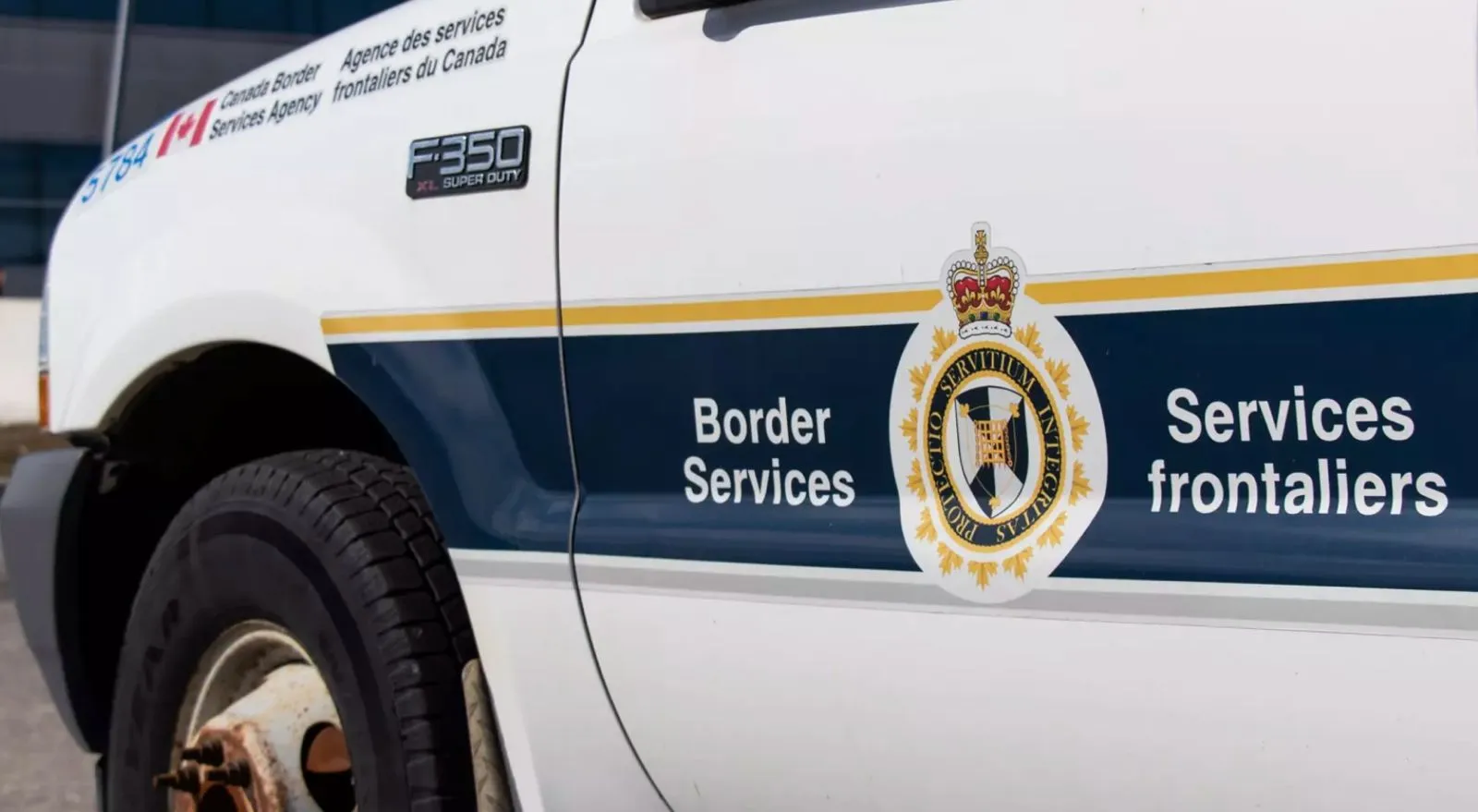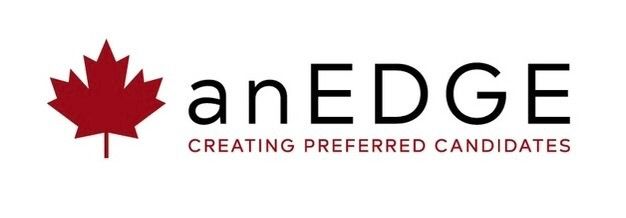Preparing for your CBSA interview can be one of the most stressful steps in the Border Services Officer hiring process. Every year, strong applicants lose valuable opportunities—not because they lack potential, but because they make avoidable errors in how they prepare, communicate, and demonstrate CBSA’s core values.
At anEDGE, our former CBSA and law-enforcement recruiters have coached hundreds of successful applicants. Below are the five most common mistakes candidates make—and how you can avoid them.
Forgetting to Link Your Answers to CBSA’s Core Competencies
The mistake:
One of the most common reasons strong applicants underperform in the CBSA interview is that they answer behavioural questions with interesting personal stories—but those stories fail to highlight the core competencies that CBSA recruiters are evaluating. The panel isn’t just listening for what you did; they’re assessing how your decisions reflect Judgment, Integrity, Communication, Teamwork, Service Orientation, and Adaptability within a law-enforcement context.
When applicants skip this connection, they risk sounding unstructured or unaware of what CBSA is truly measuring. Even confident answers can fall flat if they don’t clearly demonstrate these behavioural competencies.
The fix:
Use the STAR+R Method—Situation, Task, Action, Result, Reflection—to structure your responses with precision. Begin by outlining a concise Situation and your Task, then focus on the Actions that show your judgment, professionalism, and integrity under pressure. End with the Result and, most importantly, the Reflection, where you explain what you learned and how it aligns with CBSA’s mandate and values.
This reflection stage is where successful candidates separate themselves from average ones. It shows recruiters that you’re self-aware, adaptable, and capable of applying lessons learned to future CBSA scenarios.
👉 anEDGE Tip: During your CBSA interview preparation, practice linking each behavioural example to at least one core competency. Structured coaching sessions or mock interviews can help refine this skill until it becomes second nature.
Treating CBSA Role-Play Scenarios Like Acting Exercises
The mistake:
One of the biggest errors applicants make during the CBSA interview is approaching role-play scenarios as if they were performance tests. Many candidates exaggerate emotions, rush to “solve” the problem, or try to outsmart the role-player. This approach often backfires. The panel is not judging how persuasive, confident, or entertaining you are—they’re observing your professional judgment, emotional control, and ability to apply CBSA procedures in real-time situations.
Overacting or improvising without grounding your response in CBSA policies can make you appear reactive or unprofessional. Even when your intentions are good, straying from protocol signals to recruiters that you may not yet be ready for the structure and accountability of an enforcement environment.
The fix:
Treat every role-play as a real CBSA operational situation, not a performance. Speak calmly, use clear and professional language, and focus on maintaining control and fairness throughout the interaction. Always bring your decisions back to CBSA’s core principles—public safety, integrity, consistency, and respect. Demonstrating that you can de-escalate conflict while following procedure is what earns the panel’s confidence.
AnEDGE Pro Tip: Include mock role-play practice as part of your CBSA interview preparation. At anEDGE, our CBSA interview coaching sessions replicate actual panel conditions so you can learn what assessors are really looking for—measured responses, sound reasoning, and professional composure under pressure.
Over-Explaining or Going Off-Script During the CBSA Interview
The mistake:
A common reason candidates struggle in the CBSA behavioural interview is that they provide long, unstructured answers that wander away from the original question. In an effort to sound thorough, many applicants end up adding unnecessary detail or repeating themselves—causing the panel to lose focus and miss the core competency being demonstrated.
CBSA panels evaluate candidates based on clarity, structure, and relevance, not storytelling ability. When your response drifts, it signals a lack of self-awareness and preparation. Even strong examples can be weakened if the panel has to search for the key point that shows judgment, communication, or integrity.
The fix:
Keep your answers focused, concise, and logically structured. Use the STAR+R Method—Situation, Task, Action, Result, Reflection—to stay on track and ensure every part of your answer links directly to a CBSA core competency. Each section should flow naturally and purposefully, demonstrating clear reasoning and professionalism.
Aim for two to three minutes per response—long enough to show depth, but short enough to maintain the panel’s attention. Remember, in a CBSA interview, clarity and control are far more impressive than length or over-explanation.
AnEDGE Pro Tip: During your CBSA interview preparation, record yourself practicing answers aloud. Structured feedback from an anEDGE CBSA interview coach can help tighten your delivery, highlight key behavioural indicators, and eliminate filler that dilutes your impact
Underestimating the “Professionalism Test” in the CBSA Interview
The mistake:
Many applicants focus so heavily on the behavioural questions that they overlook the silent assessment happening the moment they walk into the room. In a CBSA interview, the panel is evaluating your professionalism, composure, and respect for process long before the first question begins. Your tone, posture, and level of preparation all contribute to the impression you make as a potential law-enforcement officer.
Some candidates arrive too relaxed, speak informally, or appear distracted—forgetting that the CBSA interview is designed to measure not only what you say, but how you carry yourself under structured pressure. Recruiters are asking themselves: “Would I trust this person to represent the CBSA at a border, airport, or enforcement environment?”
The fix:
Approach every stage of the CBSA interview process—from arrival to exit—as part of the evaluation. Dress professionally, greet panel members with confidence, and demonstrate respect for procedure and timing. Maintain calm eye contact, listen actively, and respond with measured clarity.
Panels consistently rate higher those applicants who project calm authority, accountability, and self-control—key traits aligned with CBSA’s core competencies of Integrity, Judgment, and Communication.
AnEDGE Pro tip: During your CBSA interview preparation, practice not just your answers but your presence. Mock interviews with professional CBSA interview coaches at anEDGE can help you refine body language, tone, and composure so you appear confident, credible, and fully prepared for a law-enforcement career.
Skipping Mock Interviews or Professional Feedback Sessions
The mistake:
Many applicants assume that reading about the CBSA interview or practicing answers at home is enough to succeed. But the reality is that without structured feedback, most candidates repeat the same mistakes—rambling, missing competency links, or misjudging their tone under pressure. The CBSA behavioural interview is designed to test not only what you know, but how effectively you communicate it in a high-stakes, structured setting.
Interview nerves, unclear examples, or inconsistent responses can derail even the most prepared candidate. Panels quickly recognize when an applicant hasn’t practiced in a realistic setting, and that lack of readiness can be the difference between progressing and being screened out.

The fix:
Invest time in mock interview practice that mirrors real CBSA panel conditions. Professional coaching provides immediate, targeted feedback on how you structure your answers, demonstrate CBSA core competencies, and project calm professionalism throughout the process.
At anEDGE, our CBSA interview coaching programs are led by former law-enforcement recruiters and CBSA officers who know exactly how panels evaluate applicants. We record your responses, analyze your tone and structure, and coach you to refine your delivery until it meets the standard expected in official CBSA role-play and behavioural interviews.
AnEDGE Pro tip: Treat your mock interviews as the final step in your CBSA interview preparation—a place to identify weaknesses before the real assessment. Practice under pressure builds confidence, and feedback from professionals ensures you enter the interview with the poise, precision, and presence the CBSA expects.
Final Thoughts: Professionalism and Preparation Define CBSA Success
Success in the CBSA interview isn’t determined by luck—it’s earned through preparation, structure, and professionalism. Every stage of the process, from your opening greeting to your final reflection, is an opportunity to demonstrate the core competencies that define a Border Services Officer: Integrity, Judgment, Communication, Teamwork, Service Orientation, and Adaptability.
Many applicants mistakenly focus only on “what questions might be asked,” but the CBSA interview is much deeper than that. It’s an assessment of how you think, how you perform under pressure, and whether your judgment aligns with the agency’s law-enforcement standards. The candidates who succeed are those who train intentionally, practice structured responses, and enter the room with a clear understanding of what the panel is truly evaluating.
At anEDGE, our CBSA interview coaching programs are designed to help you master this process—combining real-world recruiter insight, behavioural interview training, and mock scenario feedback that reflects actual CBSA expectations. We prepare you to respond with clarity, confidence, and composure, ensuring that every answer reinforces your readiness for a career in public safety.
Your interview is not just a test—it’s your professional introduction to a federal agency built on accountability and trust. Make sure you walk in ready to prove that you belong there.
✅ Ready to Perform Like a Professional?
Book a Free Consultation Now and learn how our CBSA Interview Coaching Program can help you stand out, perform under pressure, and secure your place in the next CBSA intake.
👉 Learn More About CBSA Interview Coaching →
